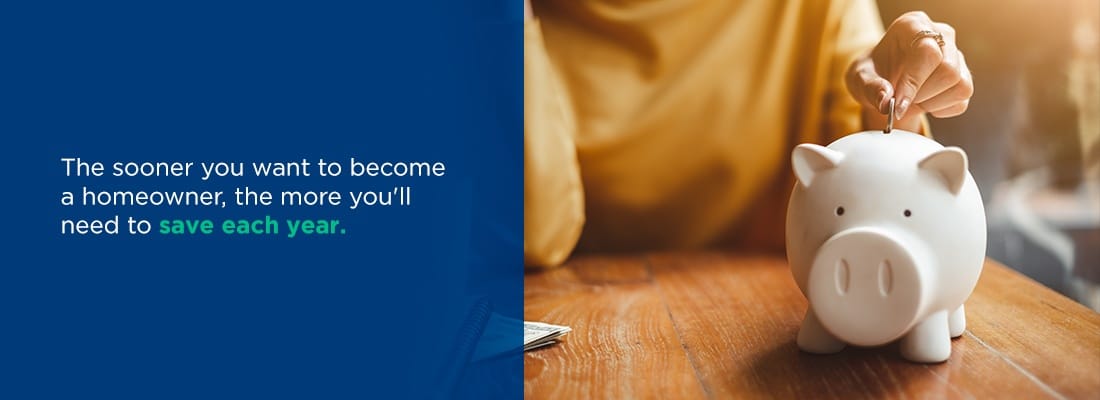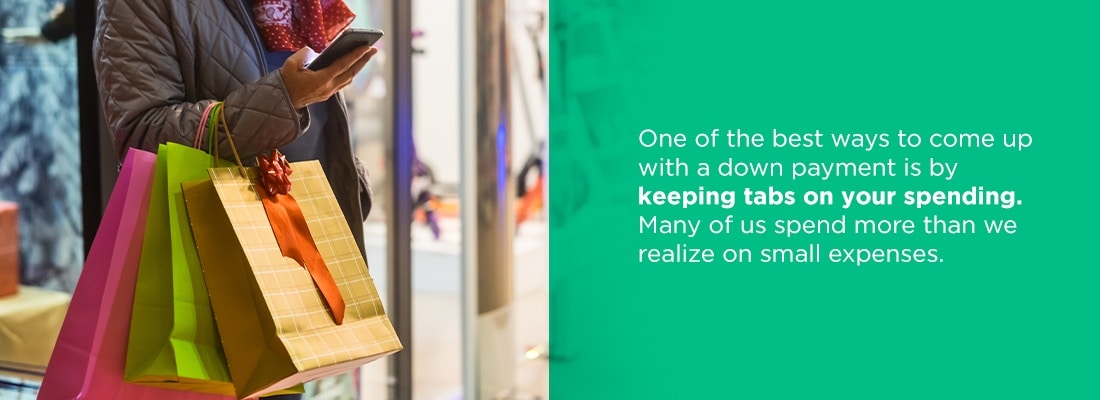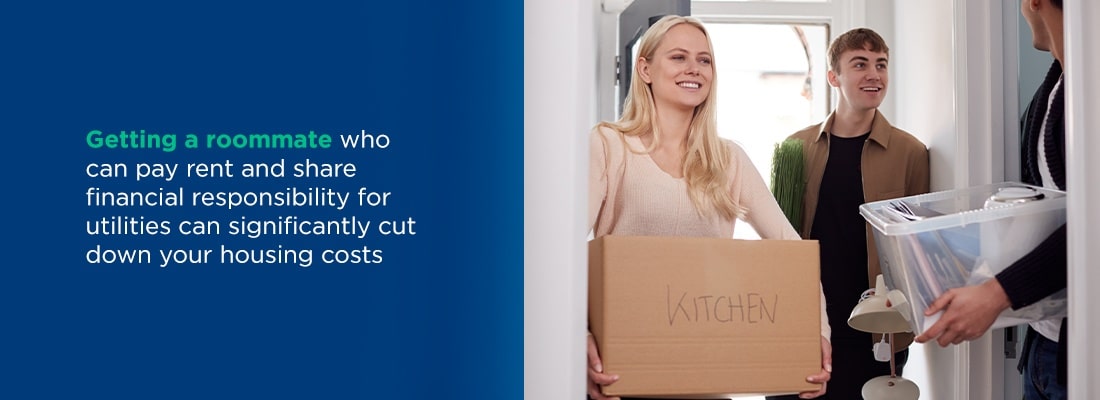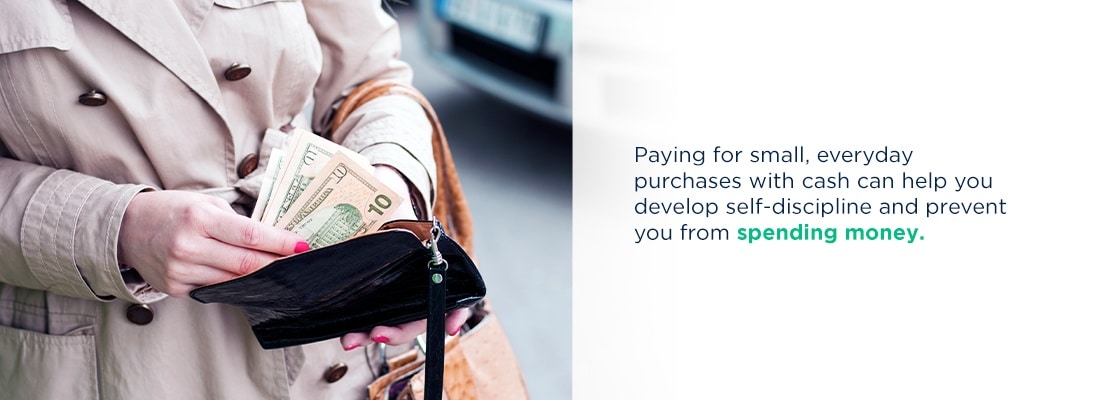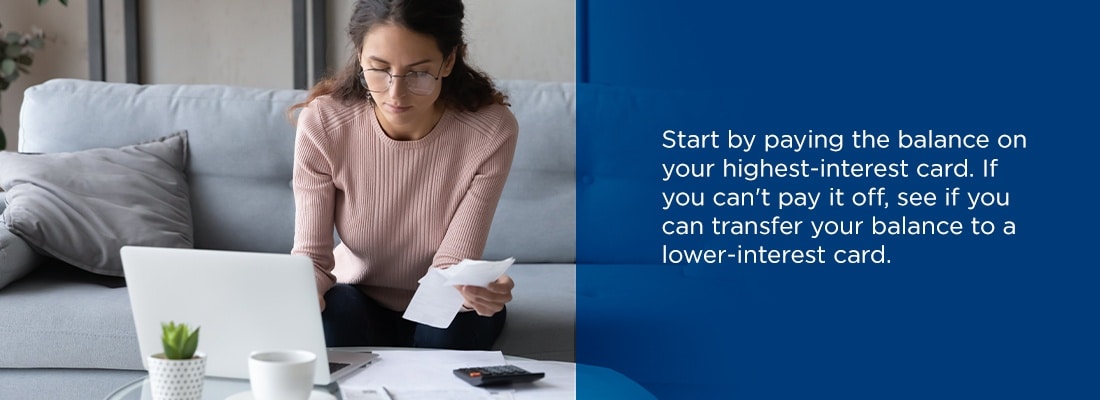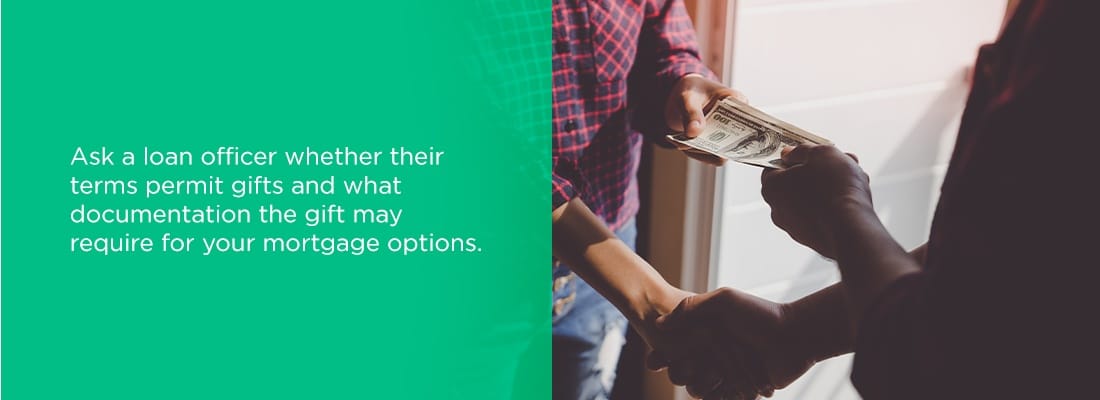For many homebuyers, saving for a down payment can be a significant obstacle to homeownership. Depending on the type of loan, you may have to put down 20% to get the best rate. For a home that costs $250,000, a 20% down payment is $50,000. This amount can take years for a homebuyer to save up, leaving you trapped in rentals until you can finally scrape together enough.
Fortunately, not every mortgage loan requires a sizeable down payment. The average percentage also varies by region, soaring in areas where housing is more expensive. If you intend to purchase a home, aim to maintain a stable financial life. That means you may not want to quit your job, buy a new car, go back to school or open a new line of credit, unless doing so may improve your credit score.
Look for ways to save instead of spend. If you can’t comfortably make budget cuts, that might signify your homebuying budget is not realistic. To help you save enough money, we have compiled a list of creative ways to save money for a downpayment on your new home.
Table of Contents
- Calculate How Much You Need to Save
- Decide on Your Timeline
- Keep Tabs on Your Spending
- Stop Unnecessary Expenses
- Save for an Emergency Fund First
- Find a Roommate
- Automate Your Savings
- Get a Side Hustle
- Go DIY
- Use Cash vs. Card
- Pay Down High-Interest Debts
- Renegotiate Rent
- Bank Windfalls
- Borrow from a Relative
- Request Down Payment Assistance
- Apply for a Mortgage Today
Calculate How Much You Need to Save
Before you start to focus on your savings goal, you may first want to calculate how much you want to save. Discuss your situation with mortgage lenders who can let you know how much of a loan you may be eligible for. However, merely learning how much you qualify for is not enough to determine your goal. Instead, it’s best to figure out how much you can comfortably afford.
Consider keeping your total housing payment between 28 and 36% of your gross monthly income. Your front-end ratio to give you conservative results is 28%, and 36% is your back-end ratio to provide more aggressive results, which usually requires a higher down payment and credit score.
Spending too much on your housing can leave you struggling to pay your other bills and live comfortably, so you may want to keep your costs between these percentages of your budget. Your total housing expenses may include:
- Your mortgage principal and interest
- Homeowners insurance
- Real estate taxes
- Homeowners association dues, if any
- Private mortgage insurance, if applicable
Use one of our mortgage calculators to determine how much home you can afford. On top of the total housing expense you can afford each month, you may also want to include your 20% down payment on this home.
For example, using our calculator, if you have a combined annual income of $60,000 and an interest rate of 4.5%, the home you can afford is approximately $221,000. Your payment for the front-end ratio is $1,400, and your payment for the back-end ratio is $1,800.
To calculate your down payment, multiply your mortgage amount of $221,000 by 20% to get $44,200 for your down payment. Keep in mind that you’ll also want your payment to cover closing costs.
Decide on Your Timeline
Next, decide on your timeline for purchasing a home. Do you want to buy a house in two years? In five years? Your goals will impact how much you need to save each year.
With the example above, if you want to purchase a home in two years, you’ll want to save $22,100 each year. If you plan to buy a house in five years, you’ll want to save $8,840 each year. The sooner you want to become a homeowner, the more you’ll need to save each year.
Keep Tabs on Your Spending
When you first glance at your budget, it may seem impossible to save for a home. On top of carving out a large chunk of your paycheck for rent, you also likely have to pay for utilities, groceries, transportation, insurance and internet — not to mention the costs of treating yourself to luxuries like vacations and going out to eat.
Unless you’re lucky enough to live rent-free, saving as much money as you need for a down payment can feel impossible. However, you may have more room in your budget than you realize, especially if you don’t already have a spending plan.
One of the best ways to save money for a down payment is by keeping tabs on your spending. Many of us spend more than we realize on small expenses, such as going out to eat, picking up snacks at the gas station and grabbing our morning coffee before work. It all adds up – $5 here, $10 there, and next thing you know, you’ve gone over your budget.
When you take steps to become aware of your spending habits, you can identify opportunities to cut back. One rule of thumb you may want to follow is the 50-30-20 rule. With this budgeting method, you’ll allocate:
- 50% of your monthly income to your needs
- 30% of your monthly income to your wants
- 20% of your monthly income to debt payoff and savings
See where you can cut costs in your expenses for needs and wants, so you can dedicate more of your income to your savings. Many choose to cut back only on frivolous expenses. However, you might be able to reduce your monthly bills, such as by shopping around for car insurance or asking for a discount on your cellphone bill.
Stop Unnecessary Expenses
Many of us spend on more than the bare necessities. When you’re working toward a substantial financial goal like saving for a down payment, this can be the time to scale back on unnecessary expenses or stop them until you reach your goal.
Once you start tracking your spending, you’ll likely notice you’re paying quite a bit for items you don’t need. Do you tend to sip a late-night glass of wine while shopping online? Are you still paying every month for a gym membership you no longer use? These are the first expenses you can cut out.
When you commit to saving, you may be surprised how much fat you can trim from your budget. Follow the tips below to cut unnecessary expenses.
-
- Cook more at home: By cooking more meals at home, you can spend less on restaurant dining and food delivery. Depending on your family’s size and how often you usually eat out, this can save you hundreds each month. If you struggle to find the energy or time to cook daily, try meal prepping to make several meals at once you can reheat later.
- Cancel your cable: If you pay for cable, try going internet-only. If you use streaming services, look into family plans, as these can be cheaper when you split them.
- Exercise at home: Cancel your pricey gym membership and start working out at home. Run, walk or bike outside. All are free ways to get the exercise you need.
- Shop mindfully: When shopping, choose store brands and use loyalty apps or coupons. Eat before you go to the grocery store, as you may be more likely to make impulse purchases if you do your grocery shopping while hungry. Make a list before you leave for the store, so you’ll only buy what you need.
- Skip vacations: If you plan on purchasing a home in a year or two, you may want to skip getaways for that amount of time and save the money you would’ve otherwise spent on vacationing.
- Make your coffee at home: While buying a coffee each morning may seem like a small, inconsequential expense, it can quickly impact your wallet. Depending on how much coffee you buy, brewing your coffee at home can save you hundreds or thousands each year.
[download_section]
Save for an Emergency Fund First
Though it may sound counterintuitive, ensure you have an emergency fund before you begin saving for a house down payment. While you are saving for your home, you may face other large, unexpected expenses, such as:
- Major car repairs
- Temporary job loss
- Emergency medical care
- Replacement of a totaled vehicle
An emergency fund can cover these unexpected expenses when they arise, so they don’t ruin your financial plans. If you have to dip into your emergency fund, ensure you replenish it as soon as possible.
Find a Roommate
If you live in a two-bedroom apartment, you may be using this room as an office, workout room or storage. To save money, you may want to consider finding a roommate who can use this room instead.
Getting a roommate who can pay rent and share financial responsibility for utilities can significantly cut down your housing costs and help you speed up your savings rate for your down payment.
Automate Your Savings
Another great way to save for a down payment is by automating your savings. Look into high-yield online savings accounts that don’t have minimum balance requirements and set up an automatic deposit from your paycheck or direct deposit to this account.
Without any additional effort on your part, you can begin earning a percentage on the amount in your savings account. Along with opening this account, commit to using this money only for your down payment. Luckily, when the deposit is automatic, you don’t have to remember to move money every month or every paycheck, and you won’t feel tempted to spend this money.
Choose a high-yield savings account for your down payment instead of a risk-type investment vehicle, such as stocks. You want to ensure you don’t lose your money and it’s there when you need it. Riskier investments are best for long-term financial goals like retirement, rather than for funds you want access to in a few years or months.
Get a Side Hustle
A side hustle isn’t only for college students! Anybody can start a side hustle that supplements their income. If you have a creative talent or some extra time, there are numerous ways you can earn extra income.
- Sell unwanted items: Look around your apartment, and you’re likely to find something you no longer use or want that you can sell for quick cash. Do some spring cleaning, or choose a minimalist lifestyle and get rid of everything you no longer use or love. You can sell these items to a consignment store or host a garage sale.
- Babysit: If you’re good with kids, you may want to look for babysitting opportunities.
- Sell your creative projects: Open an Etsy shop if you have a creative streak. Items like jewelry, stickers, candles, personalized items and digital designs tend to sell well on Etsy.
- Monetize a video channel: Imagine getting paid to do what you’d be doing in your free time anyway. If you enjoy playing video games, start a streamer channel. If you love playing with makeup and experimenting with different looks, create a YouTube channel where you offer beauty tips and tutorials.
- Drive for a ride-sharing service: Drive for Uber or Lyft during your free time on the weekends or after work.
- Tutor: If you have expertise in specific subjects because of your educational background or work experience, consider a tutoring side hustle.
While it’ll take some effort on your part, the results can be well worth it. With a side hustle, you can throw all or most of your additional cash toward your savings goal for a down payment.
Go DIY
You may be surprised by the number of items you can make and projects you can complete yourself. Need a face mask? Try to make one with products you have at home. Pinterest can be an excellent tool for anyone looking to go DIY. Find cleaning hacks, free recipes and ways to get the most out of your household items.
Use Cash vs. Card
Be honest with yourself about how you spend. For some people, using a debit or credit card can lead to overspending, as it doesn’t always feel like you’re using “real” money. With a card, it can be more challenging to keep track of how much you’re spending – until you see your monthly bank statement. And by then, it’s too late.
To combat this, you may want to consider switching to cash. When you only have a finite amount of spending money in your wallet, you may second-guess whether you need that new pair of boots or if that $5 latte is worth it.
Paying for small, everyday purchases with cash can help you develop self-discipline and prevent you from spending money you could otherwise put toward saving for your down payment. With cash payments, you can be sure you’re only using the money you have on hand and not putting yourself in credit card debt.
Pay Down High-Interest Debts
If you have high-interest debts, these can impede your ability to successfully save for a down payment, especially if the higher interest rate is on a large balance. Along with needing to dedicate a significant amount of money each month toward paying down this debt, it may be damaging your credit score.
Your credit score can be a make-or-break factor when you’re looking to purchase a home, as it impacts your ability to get a fair rate or to qualify for a loan at all. Fortunately, once you pay down or pay off your credit cards, they won’t continue negatively impacting your credit score.
Start by paying the balance on your highest-interest card. If you can’t pay it off, see if you can transfer your balance to a lower-interest card. After this transfer, pay the balance as soon as possible.
Renegotiate Your Rent
If you pay your rent on time each month, you may want to ask your landlord about a rent reduction. In exchange, you can agree to a longer lease term. Your landlord may be willing to compromise, as it can be challenging to find good tenants.
If your landlord can’t or won’t budge, you may want to start looking for a more affordable rental where you can negotiate costs, such as utilities, amenity fees and parking. You may even be eligible for a rent-free month after signing a new lease. This move alone may pad your savings account as you identify other ways to save for your down payment.
Bank Windfalls
By banking all your windfalls, you may shorten the process of saving for your down payment. Windfalls include:
- Gifts
- Bonuses
- Income-tax refunds
- Sale of personal assets
- Large commission checks
By depositing these funds in your savings account, you may speed up the process of saving enough to buy your dream home, possibly cutting months or years off your savings timeline.
Borrow From a Relative
Especially if you are a first-time homebuyer, you may receive a financial gift from your parents or relatives to help you buy your first home. If you have or will be receiving a gift from your family to help with your down payment, include this amount on your mortgage loan application.
Remember, not all mortgage loans permit the use of gifts for a down payment. Ask a loan officer whether their terms permit gifts and what documentation the gift may require for your mortgage options.
Request Down Payment Assistance
Some organizations may be willing to help you with your down payment. Many nonprofits and states have programs to aid low-income or first-time homebuyers. Ask mortgage lenders for information on programs in your area and specific to your situation.
Determine whether you qualify for down payment assistance with the U.S. Department of Agriculture Rural Housing Service, the Veterans Administration or the Federal Housing Administration. You may also want to check with local housing authorities to determine whether they have a program that can help.
Apply for Mortgage From Assurance Financial
Since Assurance Financial’s founding in 2001, we have aimed to service the loan industry differently. We can service your loan from start to finish, saving you time and effort. As a full-service, independent residential mortgage banker, we can handle the entire loan process for you with care.
We are “The People People” and have earned approval from Fannie Mae/Freddie Mac and Ginnie Mae. Our latest application technology makes starting your loan fast and simple, and our end-to-end support ensures the process is smooth. Once we review your initial application, we’ll offer you a free, no-obligation quote. After you receive your quote, you can complete the long-form application and submit your documentation.
Once we receive your application, we’ll handle all the processing in-house. After you finish appraisal and underwriting, we will determine whether to approve your loan. At this stage, we will close and fund your mortgage.
When you’re ready to finance your dream home, contact us at Assurance Financial if you prefer to apply with the assistance of one of our loan advisors. If you need assistance or have questions at any stage, our advisors are here to help.
Sources



